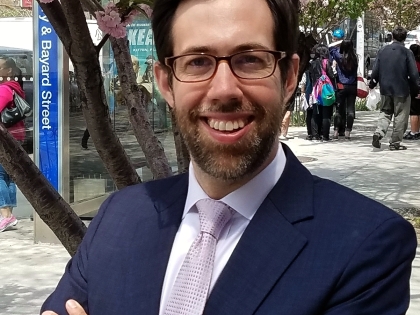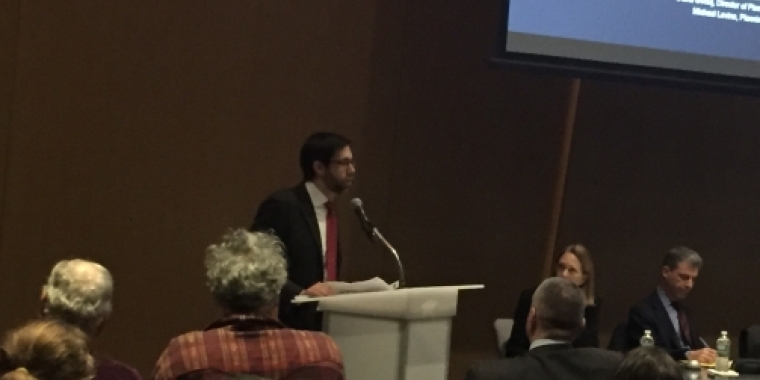
The Fog of Ethics in Albany
Feature article in the New York Times
Extortion, bribery, racketeering — those are just some of the crimes that have sent members of the New York State Legislature to jail in the last five years. The good news is that the authorities caught up with them. The bad news is how easily and how long they were able to exploit the system, and New York’s long-suffering citizens, before they were caught.
The most recent example surfaced last week when federal prosecutors released a sentencing document for Anthony Seminerio, the former assemblyman who resigned in June and then pleaded guilty to fraud. The Queens Democrat spent 30 years in the Legislature, collecting a paycheck from taxpayers. For a good part of the time, he used his elected position to solicit “consulting fees” from two hospitals, the Long Island Rail Road and other clients, all with important business before the Legislature.
The details of the government’s case reads like a profanity-laden film script — with the growling lawmaker muscling people into paying him as a “consultant” or he would ruin their companies and “kill” their bills in Albany. This went on for years until another assemblyman — indicted for separate crimes — agreed to wear a wire while talking to Mr. Seminerio.
Obviously, there is no law, no commission, no finger-wagging that could turn Mr. Seminerio and his ilk into honest citizens. But there is something profoundly flawed in a system where, first, so many people considered it business as usual (or an unavoidable expense) to pay a legislator for special treatment.
What makes it even worse is that the Legislature’s rules on reporting outside income are so weak that the public had no way of recognizing a scam like this one. As State Senator Daniel Squadron, a Manhattan Democrat, puts it simply: “Nobody’s minding the candy store.”
•
Here are some of many ways the system is failing:
OUTSIDE INCOME IS ONE OF THE PERKS Legislators in Albany are considered to be part-time workers. They are allowed to hold second jobs, including as lawyers and political consultants, although many of the more diligent ones do not have outside jobs.
OUTSIDE INCOME IS BARELY MONITORED The Legislative Ethics Commission is a feeble operation created by the Legislature to oversee itself — very gently. Its deliberations are secret and the outcome is almost never made public. Its reporting rules on outside income are shockingly weak.
Lawmakers are required to list that income only within broad ranges (Category F is $250,000 or more, for example) on documents that are edited before the public sees them. Those who work as lawyers are told not to list clients. That exemption serves many lawmakers well, including New York’s most powerful lawmaker/lawyer: Assembly Speaker Sheldon Silver. He works for Weitz & Luxenberg, one of New York City’s largest personal injury law firms, which has strong connections to the influential New York Trial Lawyers Association.
We are not suggesting that Mr. Silver has done anything illegal. But without robust disclosure requirements, it is impossible for the public to know whether a lawmaker is maintaining an unbreachable wall between his or her private practice and public service.
Even the vague numbers for income from outside business that are reported are whited-out before the form is given to the public. In the case of Mr. Seminerio, it took federal prosecutors to discover that officials at one hospital had paid him at least $300,000 over the years. This hospital had secured more than $100 million in state financing and other benefits from state taxpayers.
If the Legislature required its members to reveal more about income and clients and to make that information public, the Seminerio caper would have raised questions, even in Albany.
ETHICS COMMISSION IS AN INSIDE JOKE Even members of the ethically challenged Legislature know that their ethics commission is looking the other way. When Senator Hiram Monserrate was convicted of assaulting his girlfriend, the voters’ outrage was so high that Senator John Sampson, the Democratic conference leader, decided to bypass the commission. He established a public ad hoc group of senators to decide Mr. Monserrate’s fate.
We hope that it will have the focus, muscle and gumption to call for kicking Mr. Monserrate out of the Legislature — and that the Senate will agree. Meanwhile, Mr. Monserrate has been raising money to pay his attorneys’ fees and seems to have no plans to make his contributors public. He should be required to do so. The only word for this secrecy is outrageous.
HEAL THYSELF, NOW There are a few lawmakers, including Mr. Sampson and Mr. Silver, who say they are trying to come up with stronger ethics rules and better investigation and enforcement — for government workers and lobbyists. So far, we haven’t heard much talk about how they plan to toughen up their own rules.
At some point, New Yorkers have to ask themselves whether they want lawmakers with outside jobs. But there is a lot that needs to be fixed right now, including limits on whose money legislators can accept and rigorous public reporting requirements for all outside income.
The corruption in Albany has to end.
•
This article is part of a series examining the political and structural crisis in the New York State government.



